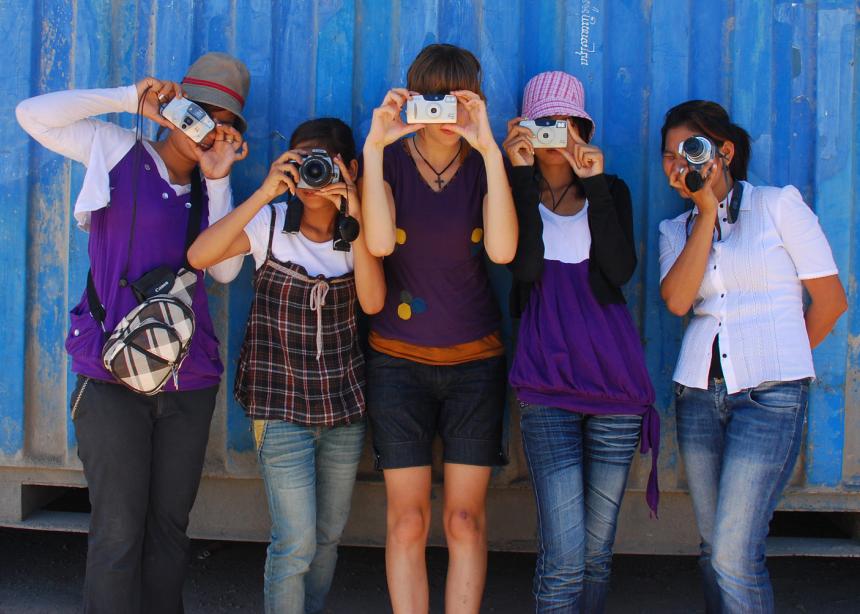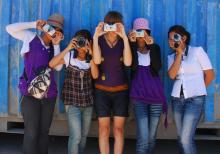For Jaymie Friesen, responding to abuse and preventing it in communities of faith is a personal calling. As the abuse response and prevention coordinator at Mennonite Central Committee (MCC) Manitoba, Friesen supports churches and individuals, and works to raise awareness of abuse and trauma.
Prior to beginning her position with MCC, Friesen worked with survivors of abuse in Southeast Asia through an organization called Daughters of Cambodia, where she coordinated a therapeutic photography course for women exiting the sex trade.
“The experience was eye opening, because I witnessed survivors of serious trauma and abuse healing and reclaiming their life. It inspired a lot of hope in me,” Friesen explains. “This work was exposure to the reality that we’re innately resilient people and we can move through these things, albeit tumultuously, but we can heal as people.”
Working with Daughters of Cambodia also made her realize that abuse occurs all over the world—even in her own backyard. She returned to Manitoba to work in youth abuse education and prevention with Survivor’s Hope Crisis Centre, where she continues to work part time.
But Friesen has another, more personal motivation behind her work with MCC: the abuse that occurred in her extended Mennonite family.
“A lot of my relatives are survivors of abuse,” she says. “This was something that came into my awareness in my early 20s. I’ve always known that, but it was never said to me that it was what had happened.”
From her personal experience, many abuse survivors suffer in silence, or with very little support. Without the support of the church and faith-based organizations like MCC, survivors and their families in Anabaptist circles can sometimes face more harm.
“I witnessed the effects of abuse that went unhealed and unacknowledged for so many years and I could see how the abuse had created a lot of brokenness within my extended family,” she says.
She wants to engage with Mennonite groups about these topics that are sometimes portrayed as an external problem, rather than one that also occurs within the church. “Sometimes within the Mennonite community there’s denial or a lack of awareness that abuse happens there, too,” she says. “I think it’s important that we create space to talk about that.”
But she has also seen tremendous strength and courage in her family members and those who have shared their abuse stories with her. “Whether someone reaches out for help or doesn’t, in either case, that person is resilient simply by the fact that they have learned to live life despite the trauma,” she says. “And in this work I get to witness that.”
Friesen offers workshops for various age groups and demographics in areas such as boundary setting, healthy sexuality, gendered violence and power dynamics in relationships. Workshops can be created or modified to meet a group’s needs.
MCC also provides support groups for survivors of abuse, worship resources, referrals to affiliated agencies, and practical tools that include promotion of healthy relationships and safety in homes and churches.
“MCC is about embodying what it means to live out the way of Jesus in relationships,” she says, “and so we need to ask ourselves what it means to walk in the way of Jesus in the aftermath of abuse. Through this program, we want to support individuals, families and churches as they go through something really traumatic.”
For more resources and information about MCC Manitoba’s work in this area, visit abuseresponseandprevention.ca.



Add new comment
Canadian Mennonite invites comments and encourages constructive discussion about our content. Actual full names (first and last) are required. Comments are moderated and may be edited. They will not appear online until approved and will be posted during business hours. Some comments may be reproduced in print.